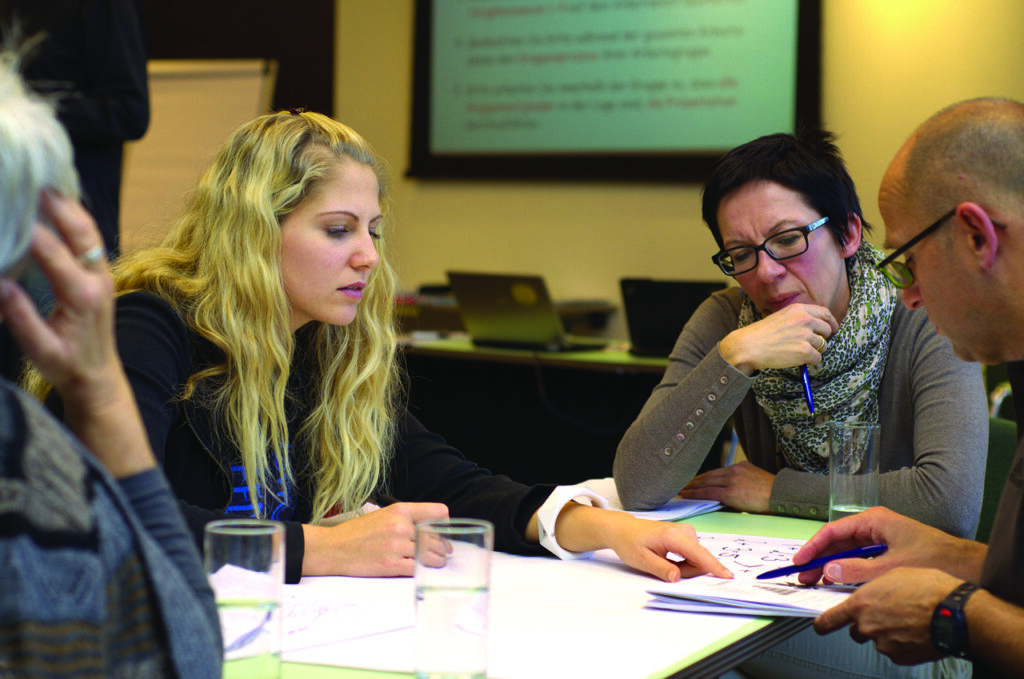“Once a human being has arrived on this earth, communication is the largest single factor determining what kinds of relationships they make with others and what happens to them”. Virginia Satir (1916-1988), Family therapist.
In other words, Communication skills are the set of skills that enables a person to convey information so that it is received and understood. Communication skills refer to the repertoire of behaviours that serve to convey information for the Individual. Communication skills are the ability to use language (receptive) and express(expressive) information.
Communication occurs on more than just verbal level. It is extraordinarily complex as people communicate verbally with social inflections, with dominating movements, and with reference to unique, past familiar incidents.
Types of Communication skills:
Communication skills can be broadly divided into two categories; these are given below:
- Verbal communication skills
- Non-verbal communication skills (Bodily and written communication)
- Verbal communication, which consists of messages sent using words, for example, “I understand what you are saying”.
- Vocal communication, which consists of messages sent through one’s voice, for example through volume, articulation, pitch, emphasis and speech rate.
- Bodily communication or non-verbal, which consists of messages sent through body, for example, through gaze, eye contact, facial expressions, posture, gesture, physical proximity and clothes and grooming.
- Taking action communication or written communication consists of messages sent when not face to face with others, for example, sending a follow up note to a client who has missed an appointment.
Listening Skills
Communication involves the ability to pay attention to what others are thinking and feeling. In other words, an important part of communication is not just talking but listening to what others have to say. Listening may involve active and passive listening. There is a difference between active and passive listening, that is, actively engaging in conversation and in working professionally. An empathetic and caring interest in which we show the other person that they have our attention.
Acceptance Techniques
To be able to have good communication skills, one needs to understand the importance of acceptance in communication.
Acceptance is the unconditional positive regard for others, as they are, with all their problems and idiosyncrasies, whereby it is not necessary to agree with their behaviour. Acceptance is an attitude in which underlies the following:
Elements of Acceptance
- To deal with persons in a friendly, caring, helpful and considerate manner.
- To be reversible in one’s behaviour, that means to act in a way in which the other might also act towards oneself.
- Not to judge or interpret what people do, say or feel, but to try to understand their point of view (to be empathic).
- Acceptance also means trust – to accept statements as true from the perspective of the speaker like, “I will believe that you are telling me the way it is in you. I do not want to waste my time being suspicious or wondering what you really mean”. Here trust doesn’t mean blind faith or trusting someone without using the Intellect.
- To accept persons or groups in their present states of mood or development, not to push them to self-disclosure or a deeper level of communication, because (even if one succeeds) it doesn’t lead to lasting results. Sometimes people even feel that their private self has been violated when they have been persuaded to give up too much self-defence.
Some of the Don’ts in an Interaction:
- Avoid pejorative or judgemental terms.
- Allow sufficient time to listen in your group.
- Your own views and possible prejudices might negativity impact on the observer. Even if you say the right thing, your body language can contradict and undermine your message.
- Never Impose your decisions or judgements about sensitive issues like marriage or break up, religion and politics.
- Don’t let cell phone disturb the progress of communication.
- Too much of body movement (frequently shifting in the chair, reading, looking at something else while listening, finger tapping etc.) may distract the listener, and may have negative Impact on rapport building.
- Talking too much about self or unpleasant tone of voice.
- Avoid rate of speech being too low or too fast.
Another aspect of effective Communication is to add humour in conversation or a situation. Humour involves giving funny, unexpected responses to a question or a situation. It requires sensitivity and timing on part of the speaker. It can circumvent the resistance, dispel tension, and helps in distancing from psychological pain.
Humour can contribute to creative thinking, help keep things in perspective, and make it easier to explore difficult, awkward, or nonsensical aspects of life (Bergman,1995: Percy & Lobsenz 1994).

